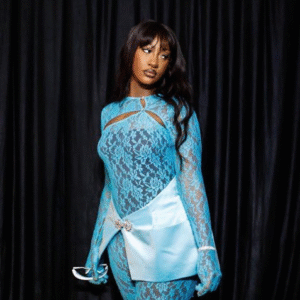1. The Concept of Divination in Nigerian Traditional Religions
Divination is a practice that seeks to uncover hidden knowledge or predict future events through spiritual means. In Nigerian traditional religions, it is deeply rooted in the belief that the spiritual world influences the physical realm. Diviners, often regarded as intermediaries between humans and deities or ancestors, utilize various methods to interpret messages from the spiritual world, providing counsel on matters such as health, relationships, and societal issues.
2. Ifá Divination among the Yoruba
Among the Yoruba people of southwestern Nigeria, Ifá divination stands out as a sophisticated and revered system. Central to this practice is Orunmila, the orisha of wisdom and divination, who is believed to have imparted the knowledge of Ifá to humanity. The diviner, known as a Babaláwo (male) or Iyanifa (female), undergoes extensive training to master the complex corpus of Ifá, which comprises 256 Odù (chapters), each containing numerous verses and stories that encapsulate Yoruba cosmology, ethics, and philosophy. During a divination session, tools such as the Opon Ifá (divination tray), Ikin (sacred palm nuts), and Opele (divination chain) are employed to determine the relevant Odù, which the diviner then interprets to provide guidance. Harvard Divinity Bulletin+4LinkedIn+4Wikipedia+4Pressbooks@MSL+2Wikipedia+2Wikipedia+2Wikipedia+1Wikipedia+1
3. Aro Divination among the Igbo
In southeastern Nigeria, the Aro people of the Igbo ethnic group practiced a form of divination centered around the deity Ibin Ukpabi. The Arochukwu shrine served as a significant religious and judicial center, where divination was used to resolve disputes, determine guilt or innocence, and guide communal decisions. The divination practices of the Aro played a crucial role in maintaining social order and were integral to the Aro Confederacy’s influence in the region. Wikipedia
4. Dlera Divination among the Kapsiki and Higi
In northeastern Nigeria, the Kapsiki and Higi communities employ a unique form of divination known as Dlera, which involves observing the behavior of crabs. A crab is placed in a pot containing sand, water, and calabash shards, and its movements are interpreted to answer questions or predict outcomes. This method reflects the communities’ close relationship with nature and their belief in the interconnectedness of all living beings. Wikipedia
5. Divination as a Repository of Knowledge
Divination systems in Nigerian traditional religions are not merely tools for prediction but also serve as repositories of cultural knowledge. For instance, the Ifá corpus encompasses vast knowledge on Yoruba history, ethics, medicine, and cosmology. Through the oral transmission of these texts, diviners preserve and disseminate cultural values and societal norms, ensuring continuity and cohesion within the community. LinkedIn+2Wikipedia+2Wikipedia+2
6. The Role of Diviners in Society
Diviners hold esteemed positions within their communities, often serving as counselors, healers, and spiritual leaders. Their responsibilities extend beyond individual consultations to include officiating rituals, guiding communal decisions, and mediating conflicts. Their deep understanding of spiritual and cultural matters positions them as vital custodians of tradition and moral authority.
7. Divination and Healing
In many Nigerian traditional religions, divination is closely linked to healing practices. Diviners diagnose spiritual causes of illnesses and prescribe remedies that may include herbal treatments, rituals, or sacrifices. This holistic approach to health underscores the belief that physical ailments often have spiritual origins and that healing requires addressing both dimensions.
8. Divination in Contemporary Nigeria
Despite the spread of Christianity and Islam, divination practices persist in Nigeria, often coexisting with other religious beliefs. Many individuals consult diviners for guidance on personal and professional matters, reflecting the enduring relevance of traditional spiritual practices. Moreover, there is a growing interest in preserving and studying these practices as integral components of Nigeria’s cultural heritage.
9. Challenges and Misconceptions
Divination practices in Nigeria face challenges, including misconceptions and stigmatization, particularly from adherents of monotheistic religions who may view them as superstitious or incompatible with their beliefs. Additionally, modernization and urbanization have led to a decline in traditional practices in some areas. Efforts to document and integrate these practices into cultural education are essential to their preservation.
Conclusion
Divination in traditional Nigerian religions is a multifaceted practice that encompasses spiritual guidance, cultural preservation, and social cohesion. It reflects a worldview that sees the spiritual and physical realms as interconnected and emphasizes the importance of harmony between individuals, communities, and the cosmos. Recognizing and respecting these practices is crucial to understanding Nigeria’s rich cultural tapestry.
Thank you for following us incase you find any error in our contents please kindly send us mail or you need additional information you want us to add to any history kindly send us because all what we are posted was generated according to what we see online or we have acknowledged about in this case we can’t perfect in 100% kindly correct us in any aspect you find that’s need.
Noted:- We are not copy from any blog if you fund one your line or content is attach to our post kinky report to our [email protected] and we promise you we are going to rephrase it immediately thanks so much we love you all.



